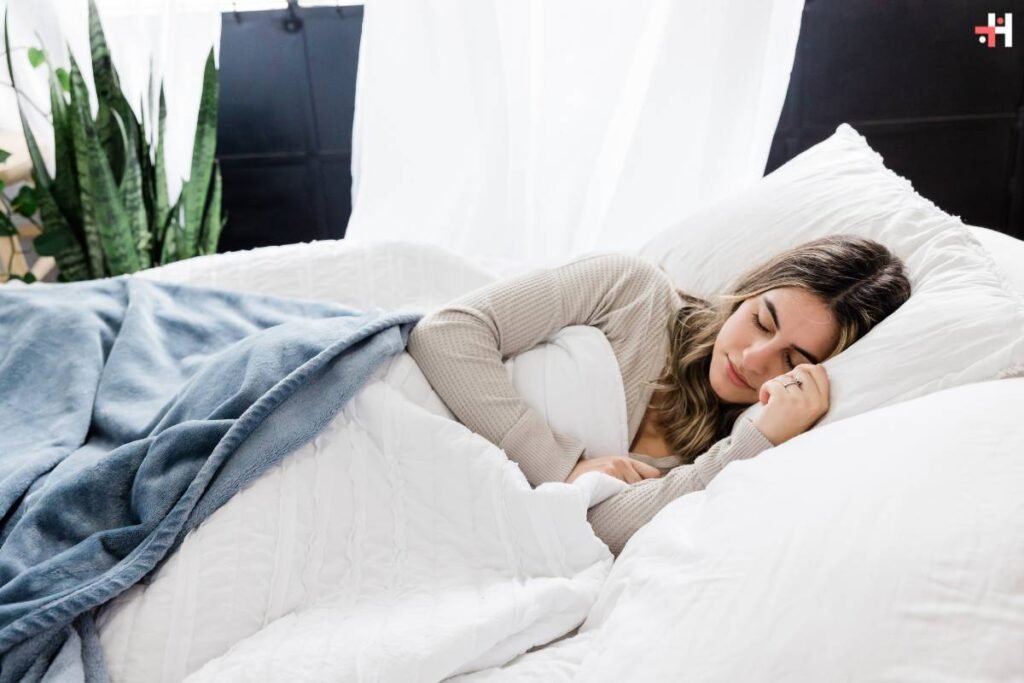In today’s fast-paced world, achieving quality sleep can be challenging. However, prioritizing sleep hygiene is essential for overall well-being. Sleep hygiene tips refer to practices and habits that promote restful and uninterrupted sleep. In this article, we will discuss fifteen effective sleep hygiene tips to help you achieve better sleep and improve your health.
1. Establish a Consistent Sleep Schedule:
One of the most crucial aspects of sleep hygiene is maintaining a regular sleep schedule. Try to go to bed and wake up at the same time every day, even on weekends. Consistency helps regulate your body’s internal clock, making it easier to fall asleep and wake up naturally.
2. Create a Relaxing Bedtime Routine:
Developing a relaxing bedtime routine signals to your body that it’s time to wind down and prepare for sleep. Incorporate calming activities such as reading, taking a warm bath, or practicing relaxation techniques like deep breathing or meditation. Avoid stimulating activities like watching TV or using electronic devices, as they can interfere with your ability to fall asleep.
3. Create a Comfortable Sleep Environment:
Your sleep environment plays a significant role in the quality of your rest. Make sure your bedroom is conducive to sleep by keeping it cool, dark, and quiet. Invest in a comfortable mattress and pillows that provide adequate support for your body. Consider using blackout curtains, earplugs, or white noise machines to block out any distractions.
4. Limit Exposure to Screens before Bed:
The blue light emitted by smartphones, tablets, and computers can disrupt your body’s natural sleep-wake cycle. To improve sleep hygiene, avoid using electronic devices at least an hour before bedtime. Instead, opt for relaxing activities that promote restful sleep.
5. Watch Your Diet and Hydration:

What you eat and drink can impact your sleep quality. Avoid consuming caffeine, nicotine, and heavy meals close to bedtime, as they can interfere with your ability to fall asleep. Instead, opt for light snacks and herbal teas that promote relaxation. Additionally, make sure to stay hydrated throughout the day, but limit your fluid intake before bedtime to prevent nighttime trips to the bathroom.
6. Get Regular Exercise:
Regular physical activity can improve sleep quality by reducing stress and promoting relaxation. Aim for at least 30 minutes of moderate exercise most days of the week, but try to avoid vigorous workouts close to bedtime, as they can have a stimulating effect. Incorporating activities like yoga or stretching into your bedtime routine can help prepare your body for sleep.
7. Manage Stress and Anxiety:
Stress and anxiety can significantly impact your ability to fall asleep and stay asleep. Practice stress-reducing techniques such as mindfulness meditation, progressive muscle relaxation, or journaling to help calm your mind before bedtime. Additionally, consider seeking professional help if you’re struggling with chronic stress or anxiety that affects your sleep.
8. Limit Daytime Naps:
While napping can be beneficial for some people, excessive daytime napping can interfere with your ability to sleep well at night. If you feel the need to nap during the day, aim for short power naps lasting no longer than 20-30 minutes. Avoid napping late in the afternoon or evening, as it can disrupt your sleep schedule.
9. Avoid Alcohol and Stimulants:
Although alcohol may initially make you feel drowsy, it can disrupt your sleep cycle and lead to fragmented and poor-quality sleep. Similarly, stimulants like caffeine and nicotine can interfere with your ability to fall asleep and stay asleep. Limit your consumption of alcohol and stimulants, especially in the hours leading up to bedtime.
10. Create a Sleep-Inducing Bedroom Environment:
Transform your bedroom into a peaceful sanctuary that promotes relaxation and sleep. Invest in comfortable bedding, such as soft sheets and blankets, and choose soothing colors and decor that promote tranquility. Keep your bedroom clean and clutter-free to create a serene atmosphere conducive to sleep.
11. Practice Mindfulness and Relaxation Techniques:

Incorporate mindfulness and relaxation techniques into your bedtime routine to calm your mind and prepare your body for sleep. Activities such as guided meditation, progressive muscle relaxation, and deep breathing exercises can help alleviate stress and promote relaxation, making it easier to fall asleep and stay asleep throughout the night.
Also Read: Mind-Body Workouts: Unlocking Stress-Relieving Benefits
12. Limit Caffeine and Stimulant Intake:
Caffeine and other stimulants can disrupt your sleep-wake cycle and interfere with your ability to fall asleep and stay asleep. To improve sleep hygiene, limit your intake of caffeinated beverages such as coffee, tea, and soda, especially in the afternoon and evening hours. Instead, opt for caffeine-free alternatives or herbal teas that promote relaxation and sleep.
13. Establish a Relaxing Pre-Bedtime Routine:
Create a calming pre-bedtime routine to help signal to your body that it’s time to wind down and prepare for sleep. Engage in relaxing activities such as reading, taking a warm bath, or practicing gentle yoga or stretching exercises. Avoid stimulating activities such as watching TV or using electronic devices, as they can interfere with your body’s natural sleep-wake cycle.
14. Practice Good Sleep Hygiene tips:
In addition to establishing a consistent sleep schedule and creating a relaxing bedtime routine, practicing good sleep hygiene tips can help improve the quality of your sleep. Keep your bedroom cool, dark, and quiet, and invest in a comfortable mattress and pillows that provide adequate support for your body. Avoid consuming caffeine and alcohol close to bedtime, and limit your exposure to screens and electronic devices in the hours leading up to sleep.
15. Seek Professional Help if Needed:

If you continue to experience sleep difficulties despite implementing these sleep hygiene tips, it may be helpful to seek professional help from a healthcare provider or sleep specialist. They can help identify any underlying sleep disorders or medical conditions that may be contributing to your sleep problems and recommend appropriate treatment options to help you achieve better sleep and improve your overall health and well-being.
Conclusion:
By incorporating these fifteen sleep hygiene tips into your daily routine, you can create a sleep-friendly environment and establish healthy bedtime habits that promote better sleep and overall well-being. Remember to be patient and consistent in implementing these tips, as it may take time for your body to adjust to new sleep habits. These sleep hygiene tips are essential for achieving restful and rejuvenating sleep, so make it a priority in your life and enjoy the many benefits of improved sleep quality.









